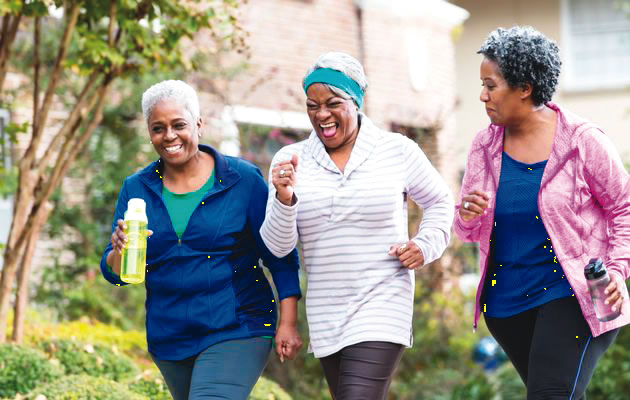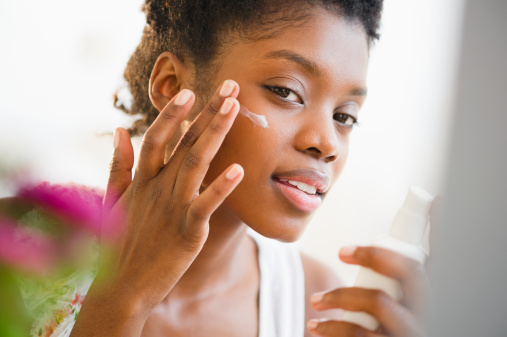Menopause is the day a woman experiences her last menstrual cycle because her ovaries, which produce eggs, have slowed down.
However, most women have said that instead of relief, they feel less feminine; others even thought they had contacted a disease.
Not to worry, doctors have said menopause, which is the permanent end of menstruation, is a turning point in a woman’s life, not a disease.
Menopause does not happen suddenly, it is a gradual process, but many women fail to see the warnings, hence they experience complications such as hot flashes and severe issues like heart diseases and osteoporosis says a gynaecologist, Dr. Jeni Worden, “Menopause is a milestone – it’s the day that marks 12 months in a row since a woman’s last period. It most time signifies that the ovaries are slowing down and the woman’s childbearing years are winding down.”
Age is the leading cause of menopause, says Worden.She notes that though few women start menopause as young as 40, and a very small percentage as late as 60, a woman should expect to stop seeing her menstrual flow between ages 45-55 years.
She also notes that there is no proven way to predict the exact age a woman would experience menopause.
Menopause affects women differently, say scientists at the National Institute of Aging.
Because hormonal composition varies in individuals, some women may reach this stage with little or no trouble; while others may experience severe symptoms such as discomfort during sex, hot flashes and sleeping problems, which drastically hamper their lives.
Worden states that for a woman to manage her health when menopause starts, she must be able to recognise premenopausal symptoms.
A major sign that menopause is approaching is a change in menstrual period but this change varies in length from woman to woman.
She adds, “Periods may get shorter or longer, heavier or lighter, with more or less time between periods. Such changes are normal,”
Sex problems
Women complain that they have less appetite to make love or feel much pain during intercourse after or before menopause. Worden says since less estrogen is produced in a woman after menopause this leads to vaginal dryness, which may make intercourse uncomfortable or painful.
One of the biggest issues with sex after menopause is that declining estrogen levels can lead to thinning of the vaginal walls,” says Dr. Adekunle Ojulari, a consultant gynaecologist.
Ojulari explains that estrogen levels fall as women approach and pass menopause resulting in dryness and thinning of vaginal tissues which causes penetration and intercourse to be uncomfortable for many women.
The discomfort can range from a feeling of dryness to a feeling of vaginal “tightness” to severe pain during sex.
He says, “ After sex, some women feel soreness in their vagina or burning in their vulva or vagina. Over time, and without treatment, the inflammation that may result from infrequent sex without sufficient vaginal lubrication can lead to tearing and bleeding of vaginal tissues during sex.Between 17% and 45% of postmenopausal women say they find sex painful.
This is one of the main reasons why between 17% and 45% of postmenopausal women say they find sex painful,5-8 a condition referred to medically as “dyspareunia.” Vaginal thinning and dryness are the most common cause of dyspareunia in women over age 50.”
Therapists on WebMd.com have said using a water-soluble lubricant during love making may help these women.
They warn that libido may also change, for better or worse, but many factors besides menopause — including stress, medications, depression, poor sleep, and relationship problems — affect sex drive. “If symptoms persist, talk to your doctor, a woman should not settle for a so-so sex life because of menopause.”
Here are other menopausal symptoms that would let you know that your menstrual cycle is winding down:
Hot flashes
According to Medicinet.com, about 80 per cent of women entering menopause experience hot flashes (or hot flushes) , a brief feeling of heat that may make the face and neck flushed, cause temporary red blotches to appear on the chest, back, and arms.
Sweating and chills may follow. Hot flashes vary in intensity and typically last between 30 seconds and 10 minutes.
Osteoporosis
Also, with menopause comes a greater risk of heart disease and osteoporosis. So it means it is time to step up and get serious about it, if you have not already.
According to a survey on WedMD.com, the number one cause of death in women in the United States is menopause-related heart disease and osteoporosis as the loss of estrogen plays a role for heart disease after menopause.
Physician-author Christiane Northrup says one of the smartest things a woman can do as she transits to menopause and afterward is to get regular physical activity. Instead of looking back mournfully, she should use this state to redefine herself with positive thoughts, love, explore what brings her pleasure, and revive (not retire) her sex life.
That includes aerobic exercise for her heart and weight-bearing exercise for her bones — both of which may help ward off weight gain and provide a mood boost.
Other treatments that experts offer to help women cope better with menopausal symptoms include low-dose birth control pills; antidepressants, blood pressure drugs, or other medications to help with hot flashes; and vaginal estrogen cream.
Your doctor may also have lifestyle tips about adjusting your diet, exercise, sleep, and stress management.
PUNCH.










